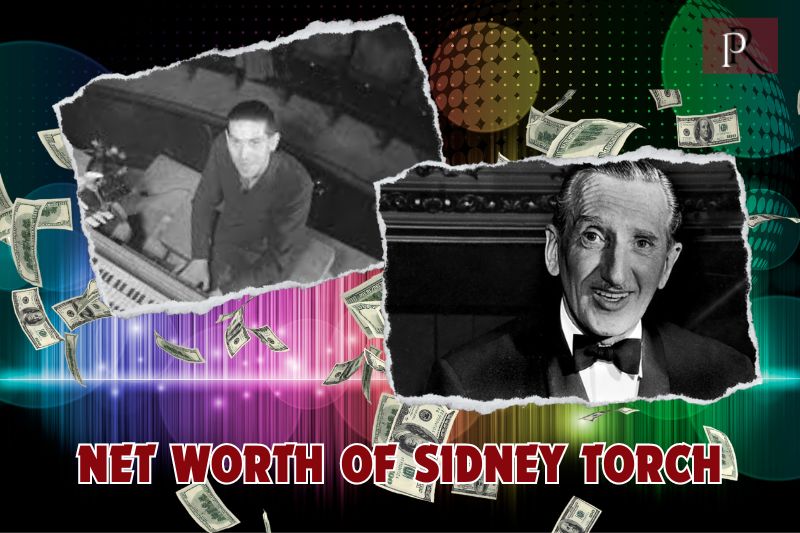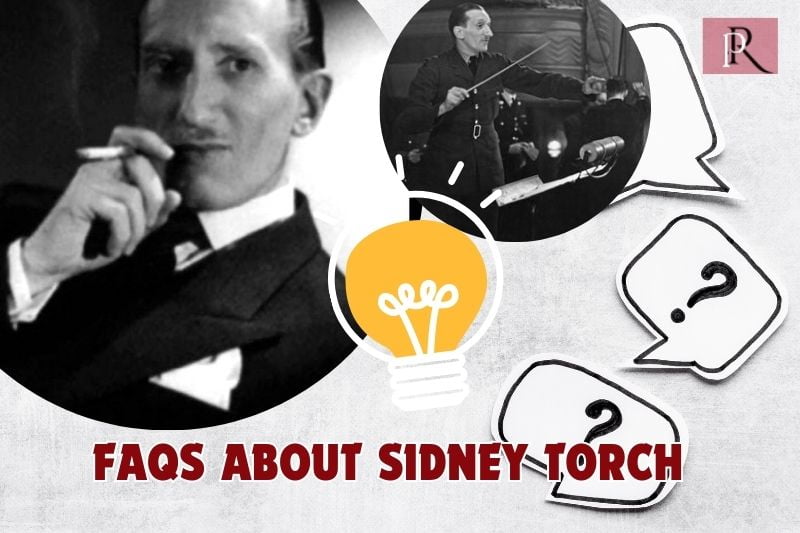Sidney Torch was an influential British musician and conductor, known for his unique style and contributions to light music.
In this article, we delve into Torch’s life, explore his career highlights, and estimate Sidney Torch net worth. We’ll analyze how his musical endeavors secured his financial legacy and what aspiring musicians can learn from his journey.
Quick information
| Real name | Sidney Torchinsky |
| Popular name | Sidney Torch |
| Sex | male |
| Date of birth | June 5, 1908 |
| Year old | Died at the age of 82 (July 16, 1990) |
| Parents | Morris Torchinsky, Annie |
| Siblings | do not apply |
| Place of birth | St Pancras, London, England |
| Nationality | brother |
| Nation | Russian Jews |
| Education | Blackheath Conservatory |
| Marital status | Married |
| Sexual orientation | heterosexual |
| Wife/Wife/husband | Elizabeth Tyson |
| Children | do not apply |
| Dating | do not apply |
| Net value | do not apply |
| Origin of wealth | Composing and conducting music |
| Height | 5 ft 8 in (1.73 m) |
What is Sidney Torch’s net worth 2024?

Although Sidney Torch died in 1990, his financial legacy can still be compared with that of his contemporaries in British light music.
Unlike composers such as Charles Williams, Robert Farnon, George MelachrinoAnd Peter YorkeTorch’s exact net worth is not publicly disclosed.
However, these composers, including Torch, may have earned considerable wealth through their prolific musical careers, especially through their prolific compositions and recordings. .
Sidney Torch Full Overview and Wiki

Sidney Torch remains an important figure in the history of British music stars, especially known for his transition from film organist to beloved BBC radio conductor.
His musical journey is both inspiring and instructive, illuminating his profound impact on light music and broadcasting.
Biography of Sidney Torch: Journey from film organist to BBC radio conductor
Born Sidney Torchinsky, Torch’s musical career began on the film organs of London’s major film palaces.
He quickly became a household name among film organ enthusiasts, demonstrating his remarkable talent on various London venues before making the dramatic transition to concert music. lightly after World War II.
Career in London’s historic film scene
In the late 1920s and 1930s, his cinematic organ performances in places such as Royal cinema, Marble archpositioning him as a star in London’s vibrant historical cinema scene.
His mastery of the film organ attracted a large audience, paving the way for his later light music career.
Turning to Light Music: How He Shaped an Era
As the appeal of the film organ waned after World War II, Torch turned his career toward light music, becoming a formidable composer and conductor.
His work with Queen’s Hall Light Orchestra and other ensembles marked an important period in British music, influencing many contemporary composers and musicians.
Contributions to the BBC and the creation of Friday Night is Music Night
Torch’s most enduring legacy is perhaps his involvement with the BBC, where he pioneered the iconic Friday Night is Music Night.
His leadership and musical direction helped shape the show into a major part of British cultural life, enduring well into the modern era.
Notable songwriting and recording
Throughout his career, Torch has created many memorable works that have stood the test of time.
Works as On A Spring Note and London Transport Suite continues to resonate, reflecting his unique blend of whimsy and orchestral discipline.
Personal life
Torch was married to Elizabeth Tyson, a BBC producer who significantly influenced his personal and professional life.
Residing mainly in Eastbourne, Sussex, Torch enjoys a relatively private life outside of his popular music career.
Social Media
do not apply
Frequently asked questions about Sidney Torch

Who is Sidney Torch?
Sidney Torch, born Sidney Torchinsky, was an English musician best known as a pianist, film organist, conductor, arranger and composer of light music.
What is he famous for?
Torch is honored for his dual achievements in the world of music: first as an outstanding organist in cinema and later as an outstanding conductor and composer of light music.
Did he serve in the military?
Yes, he served in the Royal Air Force (RAF), during which time he was commissioned and attained the rank of Squadron Leader. He also conducted the RAF Concert Orchestra.
What were some of Sidney Torch’s significant contributions to music?
Among Torch’s notable contributions are his signature tune I’ve Got To Sing a Torch Song, and his composition On A Spring Note, which remains popular with film organists until today.
Is he involved in film music?
Indeed, he made a significant contribution to film music, not least through his organ performances in many London cinemas and his exceptional lyrics for I’ve Got To Sing a Torch Song from the 1933 film Gold Diggers.
Where can people hear Sidney Torch’s music today?
His music is accessible on modern streaming platforms such as Deezer, where his albums and songs are available to listen to.
Did he receive any awards for his work?
That’s right, he was made an MBE (Member of the Order of the British Empire) for his services to music. Additionally, the album he recorded with Bryn Terfel and the London Symphony Orchestra won a GRAMMY Award in 2007.
How did his early life influence his career?
Born to Ukrainian parents in London, his father, an orchestral trombonist, encouraged his musical talent. Sidney studied piano at Blackheath Conservatoire, which laid the foundations for his diverse musical career.
In what genre did Sidney Torch work?
His work spans a variety of genres including easy listening, stage & screen, vocal, orchestral/easy listening, soundtrack, soundtrack, standards, traditional pop and mood music.
When did he die?
He died on 16 July 1990, aged 82, in Eastbourne, Sussex, leaving behind a rich legacy in light music and cinematic organ performance.
Conclusion
Uncovering Torch’s net worth not only highlights his financial successes but also sheds light on the timeless impact of his music. Dig deeper into rachelparris.com to understand his lasting influence in the world of music.
Categories: Musician
Source: svlsf.edu.vn
